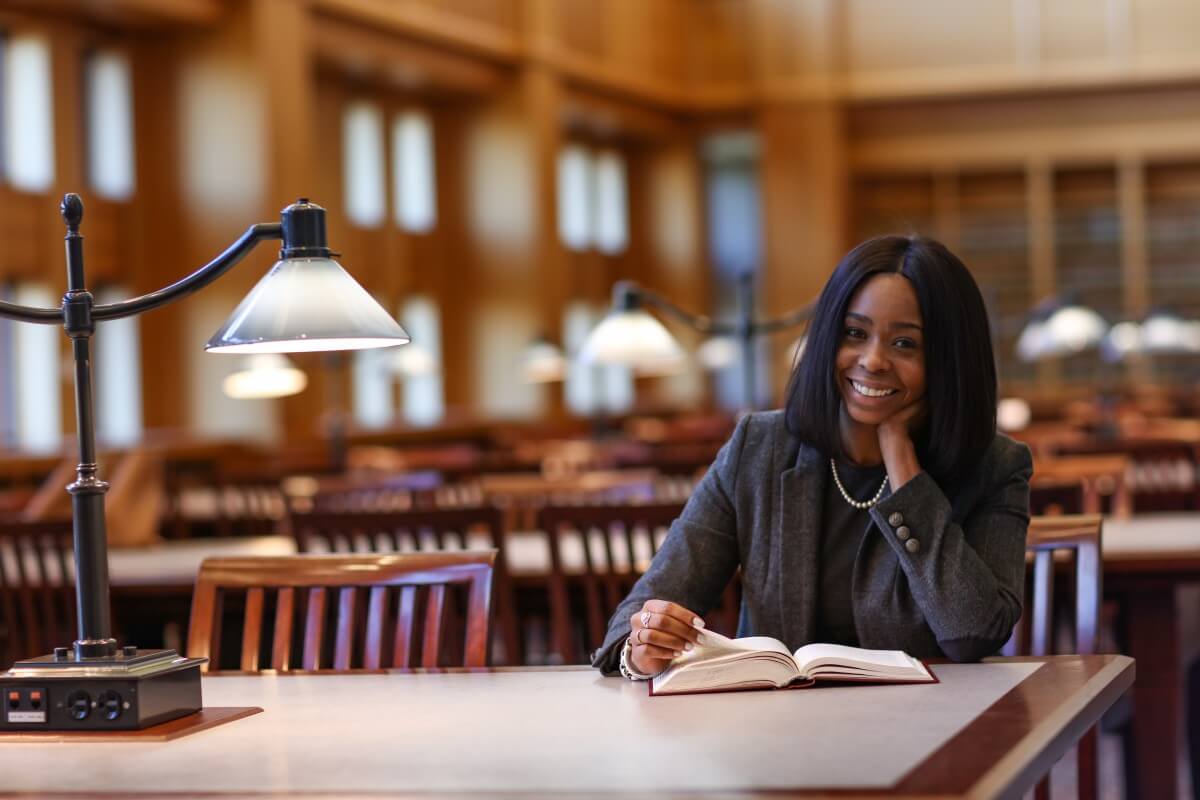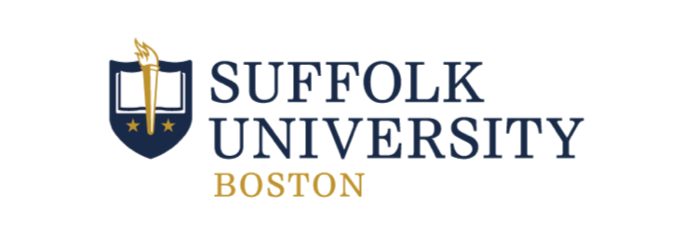Not all heroes wear capes. In the legal world today, some develop technological solutions that make a difference in real lives.
A leading force in this area of legal innovation can be found at 120 Tremont Street, Boston. Suffolk Law School is where the nation’s brightest law students and faculty are working toward solutions to make access to justice a reality for tens of millions of Americans.
Its Legal Innovation and Technology (LIT) Lab is where the law school produces cutting-edge public service, data science and artificial intelligence (AI) projects to serve the public.
In one AI project, funded with a grant from the Pew Charitable Trusts, the law school is trying to improve access to the country’s civil legal system.
Though court and other government websites in the US provide legal information, knowing what to search for and understanding legal jargon can be difficult for lay people.
Spot, software that is being developed at the LIT Lab, aims to fix this.
“You know you have a housing problem. But very few people think about their housing problems in terms of something like constructive eviction,” explains David Colarusso, who heads the LIT Lab. “The idea is to have the tool be able to spot those issues based upon people’s own language.”
Developed by Colarusso and students, Spot uses a machine-based algorithm to understand legal queries posed by lay persons. With Spot, entering a question in plain English like “My apartment is so moldy I can’t stay there anymore. Is there anything I can do?” brings up search results that would direct users to the right legal issue. In this case, the query is highly likely to be related to a housing issue or, more specifically, to the legal term “constructive eviction.”

Suffolk Law
These issues may seem small, but they could make all the difference in civil cases that can result in jail time, losing your home or custody of children. The rise of legal technology, like the ones spearheaded at Suffolk Law, is crucial to providing legal help to those who need it most.
The World Justice Project estimates five billion people have unmet justice needs globally. These include those who are excluded from the opportunities provided by law, cannot obtain justice for everyday problems and live in extreme conditions of injustice.
It found that in high-income countries in Western Europe and North America, there is a “vast majority” that have unmet civil justice needs pertaining primarily to consumer and housing related disputes. In a few high-income countries in East Asia, Eastern Europe and South America, there are insufficient legal protections pertaining to employment and land/housing tenure.
Legal technology, like Spot, aims to narrow this gap by making the law more effective and accessible to all, especially low- to moderate-income populations.
This fall, the LIT Lab was recognized with a top honor, the InnovAction Award, from the College of Law Practice Management. Another crowdsourcing tool, Learned Hands, where lawyers, students, and gamers train a machine to spot and sort legal issues, was shortlisted among 30 of the most innovative access-to-justice projects in the world by the World Justice Project. The American Bar Association’s Center for Innovation NextGen Fellow and LIT Fellow Nicole Siino (JD’18) also created a mobile tool for judges and lawyers to help juveniles avoid jail time.
With these awards and achievements, it’s unsurprising to see Suffolk Law ranked 1st in the nation for legal tech by the National Jurist and described as “one of the most innovative forces in legal education” by preLaw magazine.
But legal technology is by no means the only field in which the law school is making waves. Suffolk Law is home to some of the most pioneering law courses in the US today, such as the LLM in Global Law and Technology. The first of its kind in the US, this specialist Master’s combines different specializations into one program: Intellectual Property and Information Technology Law; Biotechnology and Health Law; International Law and Business; US Law and Legal Methods.
Suffolk Law is also the only school with four top 20 ranked legal skills specialties – clinics, legal writing, trial advocacy and dispute resolution – for four consecutive years in US News & World Report.

Suffolk Law
Cara Libman (JD’19) is one student who has been empowered by the top-ranked clinics in Suffolk Law, so much so that the student attorney in the Human Rights and Indigenous Peoples Clinic (HRIPC) took a case all the way to the United Nations in Geneva this year to help an indigenous community facing hardships caused by environmental change.
Together with Nicole Friederichs (JD’03), Director of the HRIPC, they advocated before a UN treaty body, joining leaders of indigenous communities from central Brazil who made their case for halting and rethinking massive agribusiness infrastructure projects.
It’s these invaluable experiences in law school that stay with students long into their future careers. Alumna Janeth Moreno (LLM’09) is another legal hero produced by Suffolk Law. Today, she is the founder of Moreno Law in downtown Boston and a force in advocating for immigrant communities in an increasingly turbulent field of immigration law.
She not only works with local consulates of Colombia, Mexico, Guatemala and El Salvador but also connects directly with immigrant communities in New England, bringing “Know Your Rights” sessions into neighborhood churches.
Moreno’s commitment to social justice is typical of Suffolk Law graduates. From going to the United Nations to developing game-changing software and empowering immigrants, Suffolk Law graduates are armed with the tools and knowledge needed to make the world a better place.
As Moreno says: “I’ve seen the impact in the communities, it’s making a difference. It makes everything worth it.”
Follow Suffolk Law on Facebook, Twitter, YouTube and Instagram











